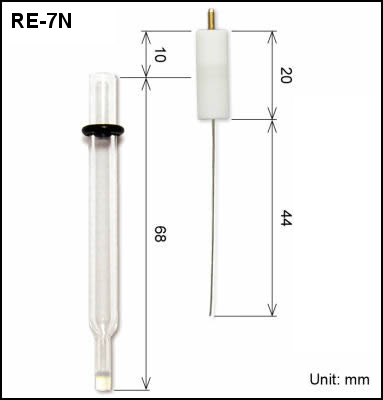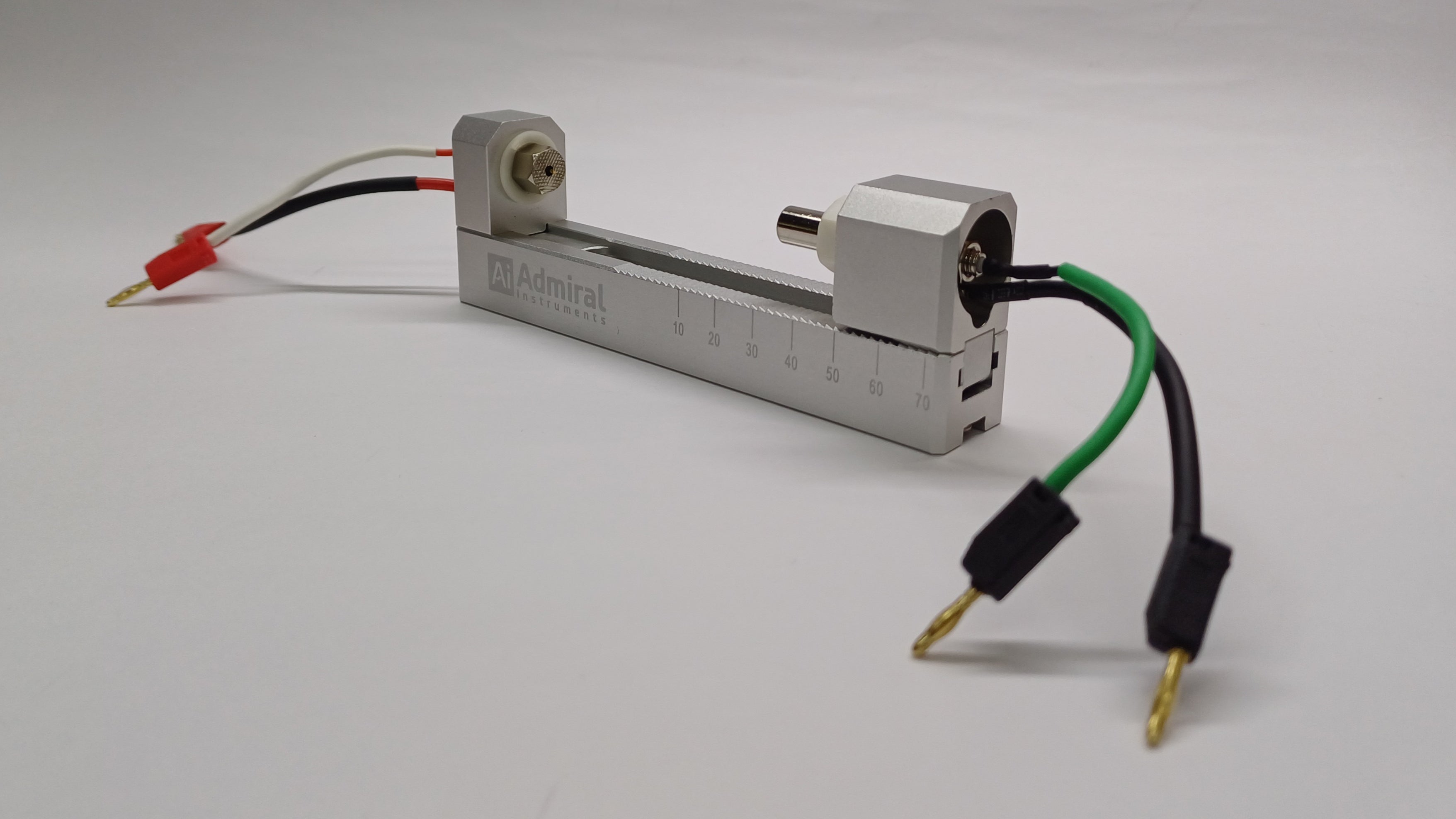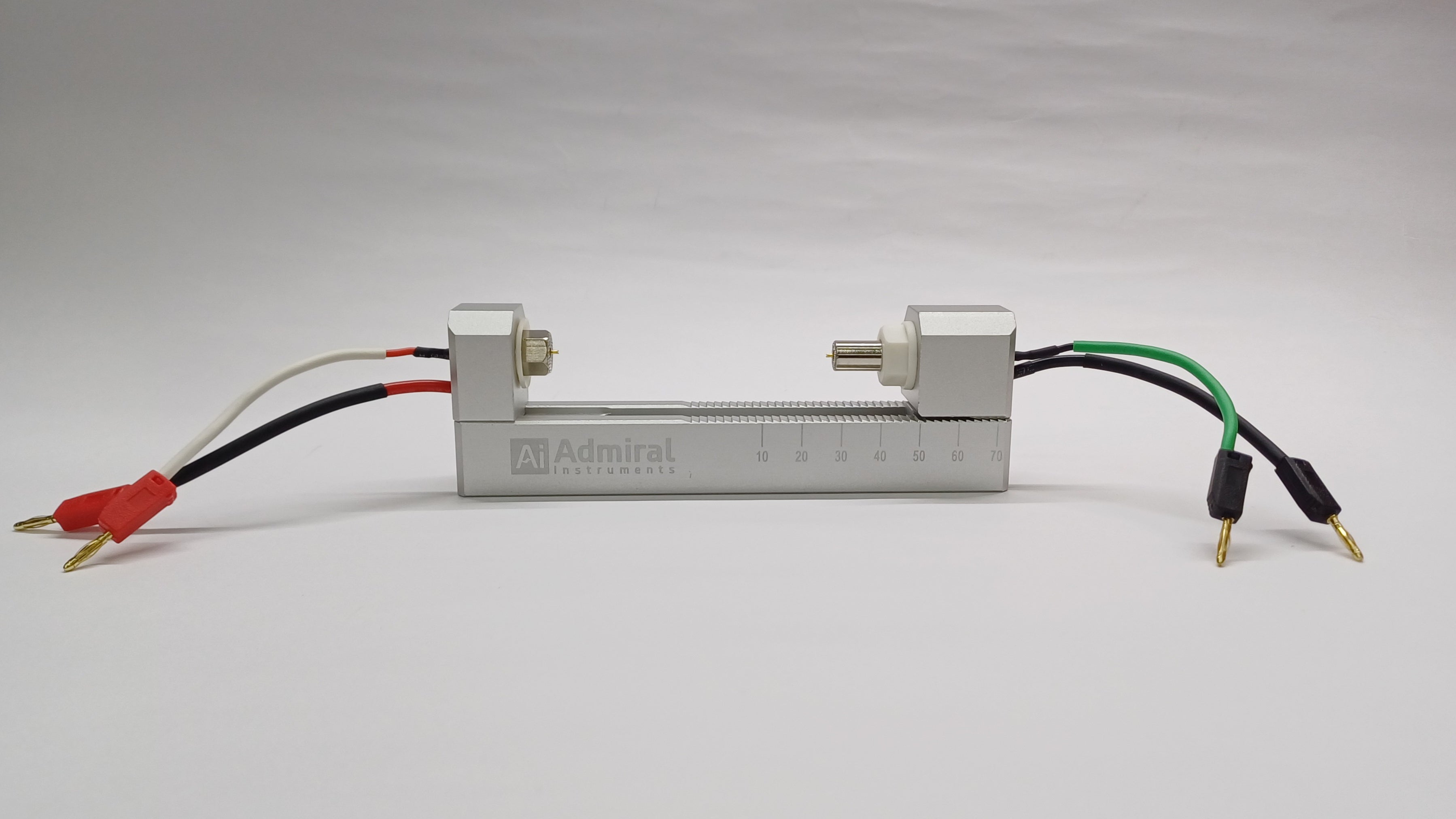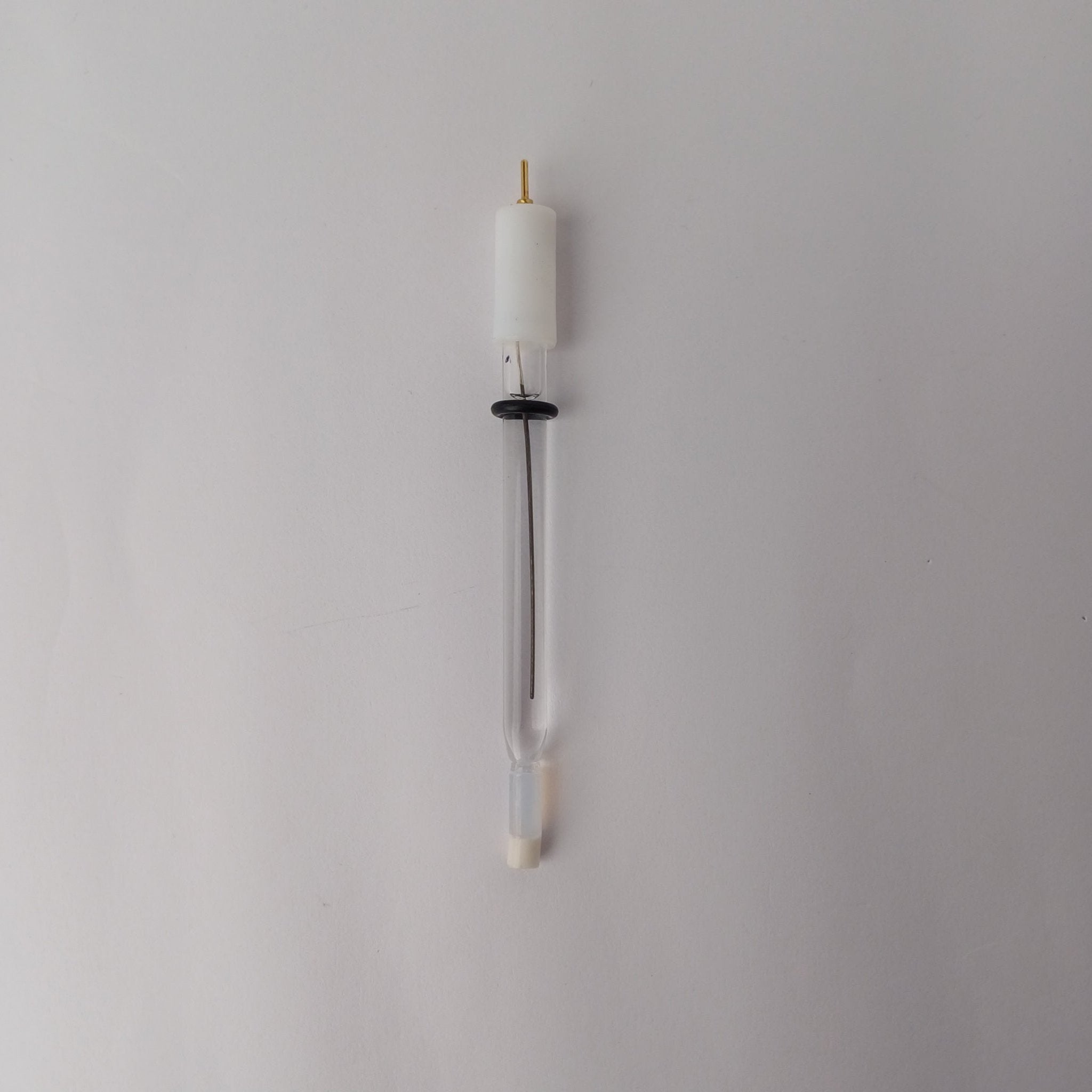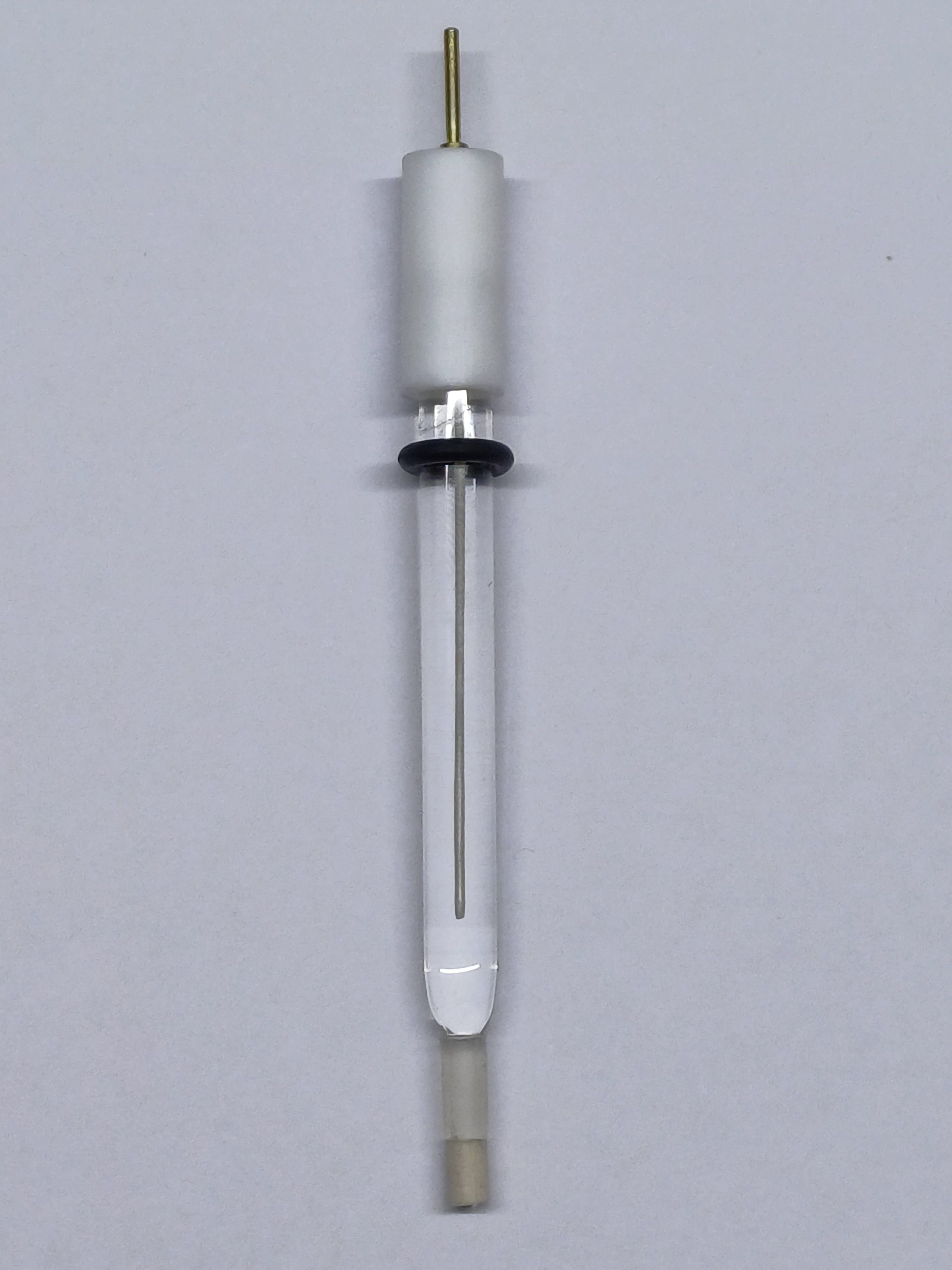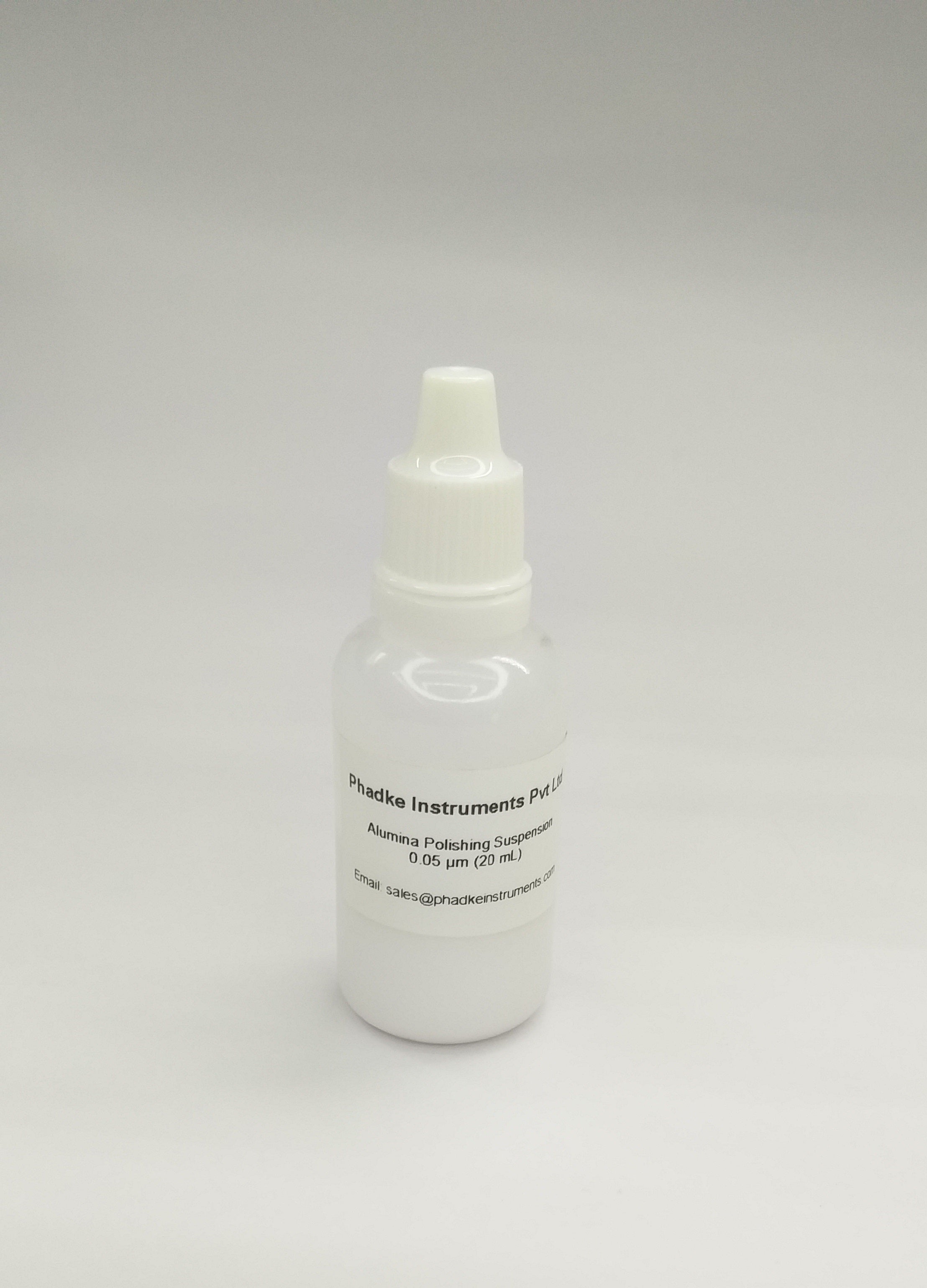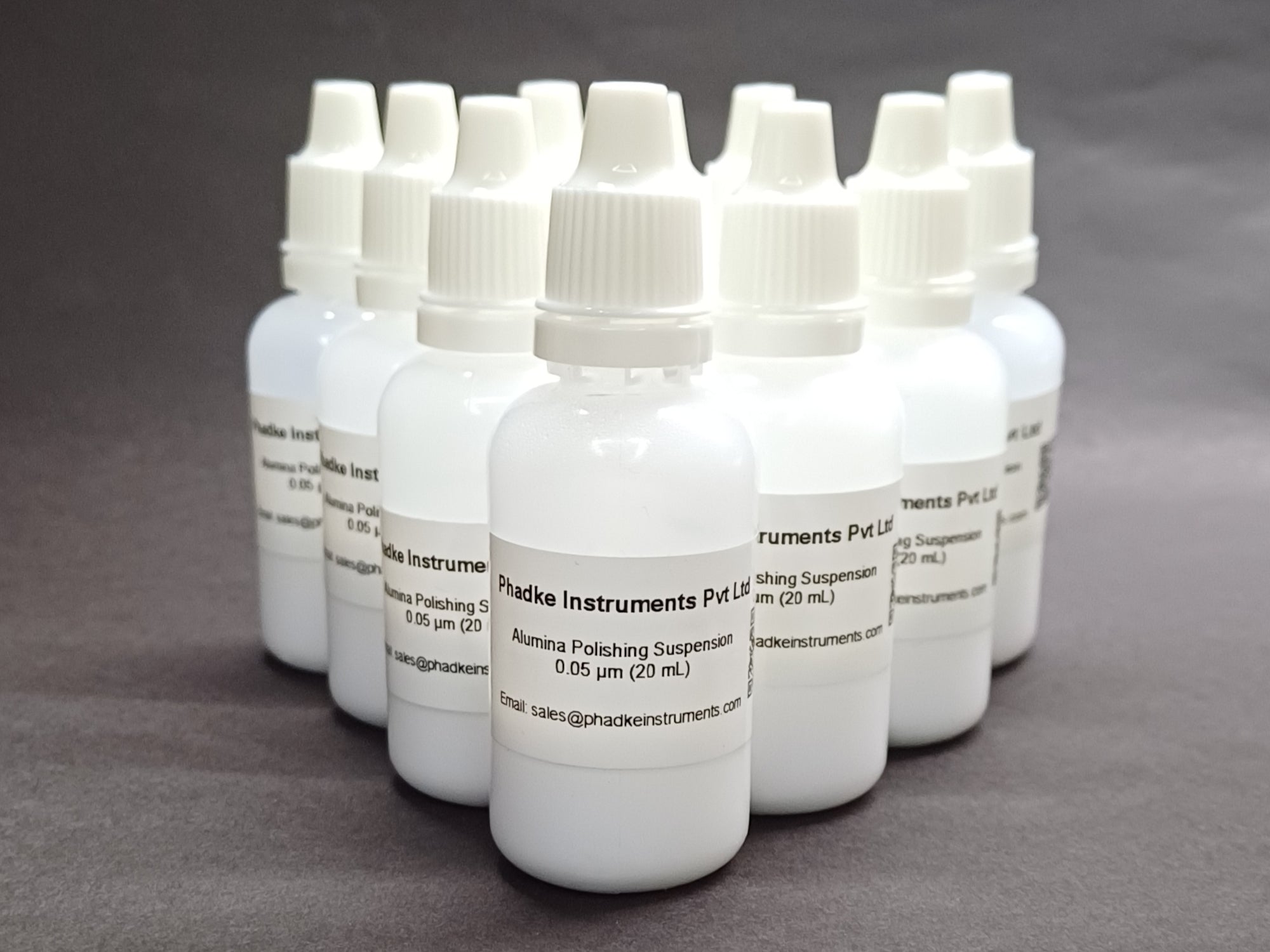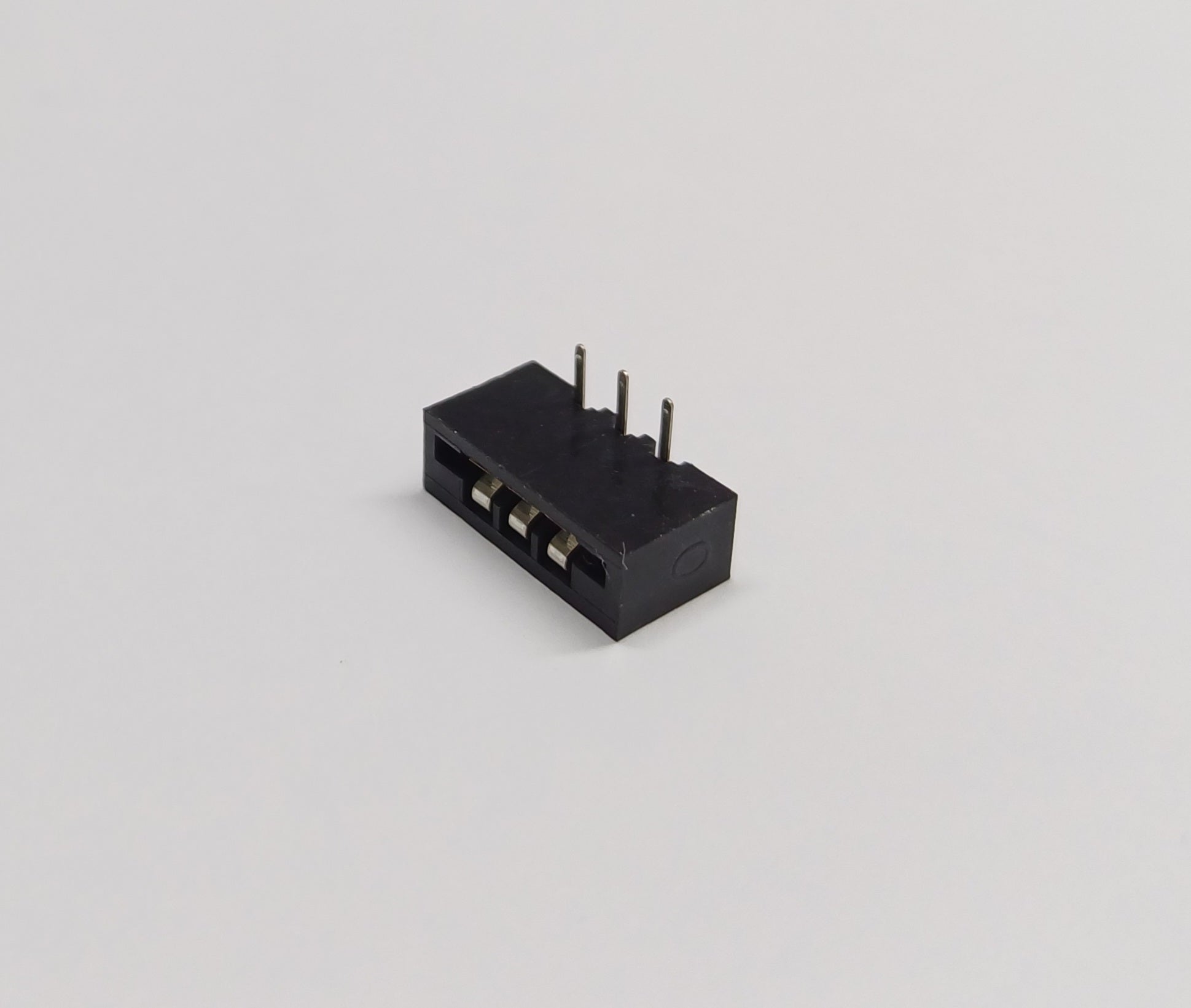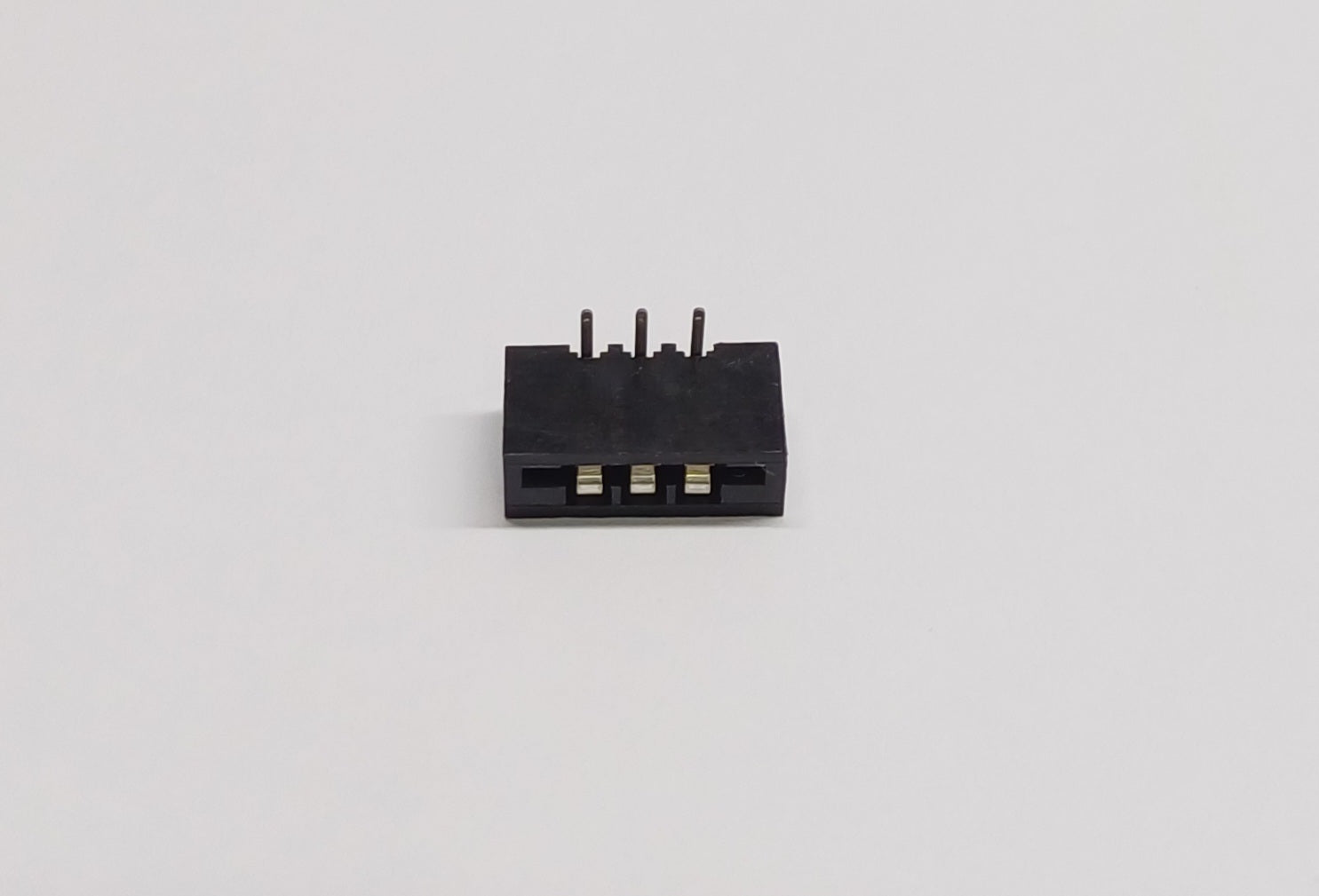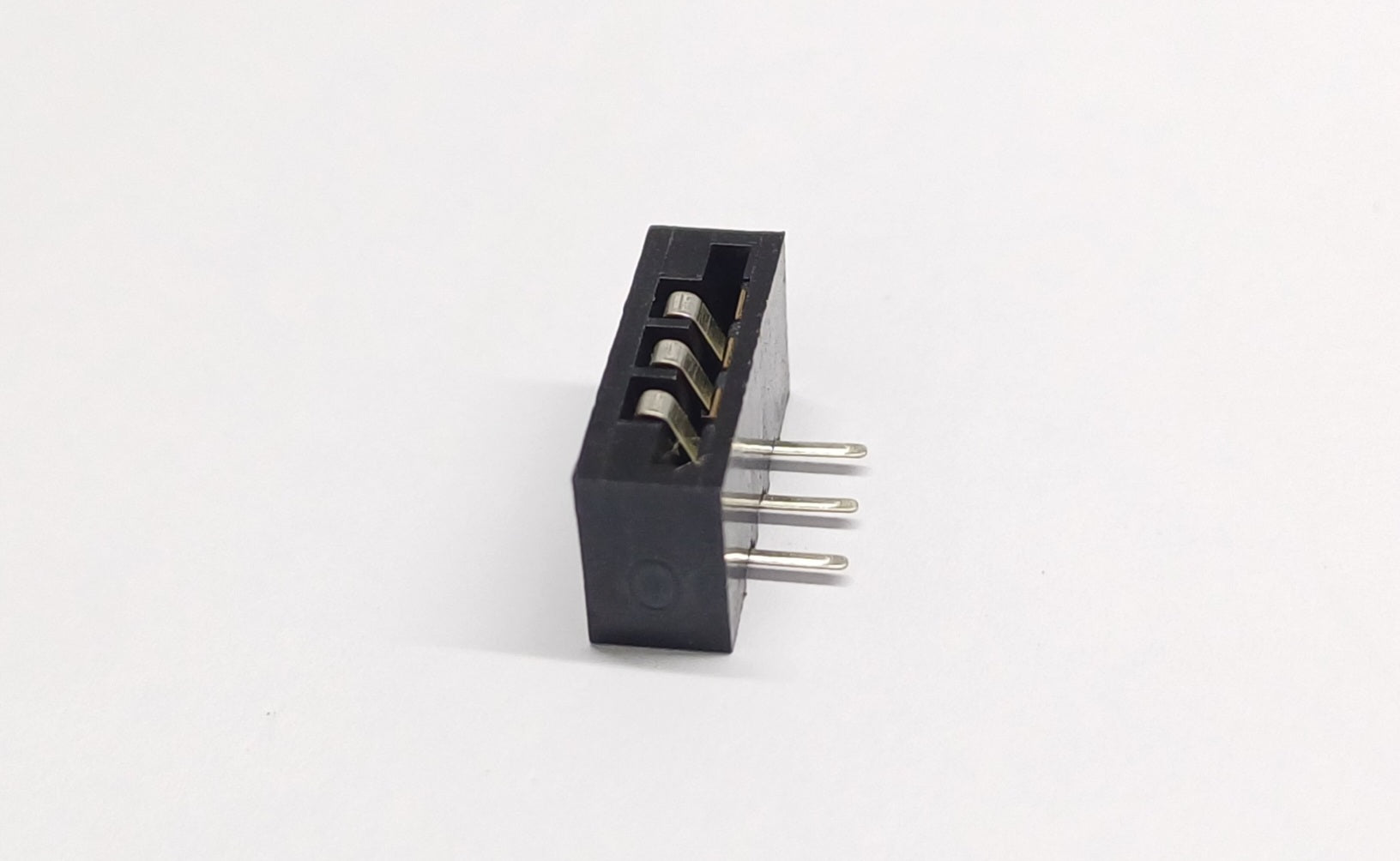Rs. 14,101.00 Incl. GST
- For apply in an organic solvent sample
- Internal solution changeable
Preservation of the electrode
- Fill the sample holder with an acetonitrile/0.1 M tetrabutylammonium perchlorate/0.01 M AgNO3 solution.
- Rinse the Ag wire with acetone.
- Keep the electrode immersed in an acetonitrile/0.1 M tetrabutylammonium perchlorate solution, with or without Ag ion (0.01 M AgNO3).
Note:
- Avoid the dry of the IPPG (Ion Permeability Porous Glass); glass, it could cause the crash of the IPPG; glass tip, caused by the salt crystallization inside of the glass. Make sure to keep the tip always wet.
- Before assembly the electrode, immerse and keep the IPPG; glass tip in an organic solvent for at least one hour.
- If bubbles are present around the IPPG; glass, remove with a slight tapping. Air bubbles will isolate, blocking the current flow.
- Use only high grade products and reagents.
- Wash with acetonitrile. Salt crystallization, in the inner side of the Teflon cap and at the edge of the sample holder, makes difficult the assembly.
Electrode
This electrode is silver-silver ion reference electrode for non-aqueous solution.
In order to reduce the liquid junction potential, use the same solvent and supporting electrolyte, as a sample and electrode internal solution.
Solvent
The solvent in non-aqueous electrochemical should be considered as following:
- Electrode activity material and produced substance solubility.
- Select according to the potential area to be measured.
For example, dimethyl sulfoxide (DMSO) is major solvent in the negative potential area, and acetonitrile (ACN) is major solvent in the positive potential area.
The non-aqueous solution could contains impurities, and the impurities could cause the block reactions. Distilled the solvent sufficiently, to eliminated impurities before using.
Supporting electrolyte
If the sample is dissolved in an organic solvent, the supporting electrolyte must be added.
In order to select the supporting electrolyte, it is necessary to consider the following:
- Solubility in organic solvents
- Wide potential window
- No reaction with organic solvent
Typical supporting electrolyte:


